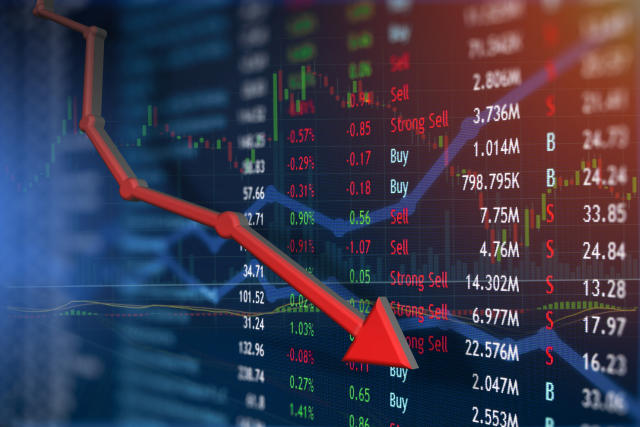SELLING PRESSURE WEIGHED DOWN EQUITY ACROSS GLOBE

The Dow Jones closed 345 points lower on Thursday, while the S&P 500 and the Nasdaq shed 1.4 and 1.7%, respectively, as the collapse of Silicon Valley Bank was the main focus besides the latest jobs numbers. On Friday, regulators took control of the Californian bank after it shares sank sharply, the biggest bank failure since 2008. Other banks also suffered in the wake of Silicon Valley Bank’s demise. Earlier, the run-on deposits doomed the tech-focused lender’s share sale to shore up its balance sheet amid losses from bond sales. Meanwhile, employment report showed that US employers hired more workers than expected in February, with nonfarm payrolls increasing by 311,000. On the other hand, unemployment unexpectedly rose to 3.6% and wage inflation cooled, easing some worries that a still-tight labor market will prompt sharper interest rate hikes. For the week, the Dow was down 4.5%, marked its worst week since September, while the S&P 500 and the Nasdaq shed 4.9 and 5.1%, respectively.
European shares closed 1.5% lower on Friday, as investors weighed signs of stress in the US banking system against US jobs data. The losses were led by financials, with Europe's banking index falling 3.9% and booking its largest daily decline since early June, after tech lender SVB Financial announced a capital raising to shore up its balance sheet due to declining deposits from its customers. Deutsche Bank (-7.2%), HSBC (-4.8%), Banco Santander (-4.3%), BNP Paribas (-4%) and UniCredit (-3.2%) were among the worst performers. Meanwhile, the latest US employment report showed an acceleration in job growth in the world's largest economy, with 311 thousand jobs created in February, more than an expected 205 thousand rise. On the other hand, wage growth came in slightly below expectations, while the jobless rate picked up as more people entered the labor force. For the week, the STOXX 600 lost 2.5% and Germany's DAX 40 dropped 1.2% also on the back of Fed Chair Powell's hawkish remarks.
The Shanghai Composite fell 1.37% to close at 3,230 while the Shenzhen Component dropped 1.19% to 11,443 on Friday, sliding for the fifth straight session and tracking a bank-led selloff on Wall Street overnight amid concerns that higher interest rates are pressuring bank balance sheets due to borrower defaults. The benchmark indexes also posted sharp weekly losses, weighed down during the period by a disappointing growth target for China set at the annual National People's Congress over the weekend. Meanwhile, investors watched for market reaction as Xi Jinping is set to formally secure an unprecedented third term as president. Notable losses were seen from heavyweight firms such as BYD Company (-5.2%), Inspur Electronic (-6.5%), Zhonghang Electron (-12.6%), China United Network (-4.2%) and China Telecom (-2.9%).
The BSE Sensex held losses from early trading to close 670 points lower at 59,135 on Friday, booking a 1.1% loss on the week and tracking the downturn for equities worldwide after Silicon Valley Bank’s struggle to meet depositor demand triggered a rout in global banking stocks. HDFC, IndusInd Bank, and the State Bank of India all sank more than 2% to lead losses for the financial sector in Mumbai. Tech shares also came under pressure ahead of the key US jobs report to be released after the closing bell, expected to significantly affect the Federal Reserve’s interest rate decision later this month. Expectations of a rebound in economic activity in China also pressured Indian equities as investors reallocated capital to the world's second-largest economy. On Thursday, foreign investors snapped a four-session buying streak in Indian stocks and offloaded a net USD $68.49 million worth of equities.
The Nikkei 225 Index dropped 1.67% to close at 28,144 while the broader Topix Index tumbled 1.91% to 2,032 on Friday, retreating sharply from multi-month highs, as the Bank of Japan left its policy of ultra-low interest rates unchanged at its March meeting, in what was Governor Haruhiko Kuroda’s final policy meeting before retirement. Japanese shares also tracked a bank-led selloff on Wall Street overnight amid concerns that higher interest rates are pressuring bank balance sheets due to borrower defaults. Financial stocks led the market lower, with heavy losses from Mitsubishi UFJ (-6.1%), Sumitomo Mitsui (-5.3%) and Mizuho Financial (-4.9%). All other sectors declined, including index heavyweights such as Nippon Yusen (-6.6%), SoftBank Group (-6.3%), Sony Group (-2.7%), Keyence (-2.3%) and Seven & I Holdings (-5.9%). Still, the benchmark indexes finished the week higher for their second straight weekly advance.


